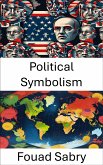Discover the profound influence of psychological theories on political behavior in "Political Psychology," a key volume in Fouad Sabry's "Political Science" series. This essential book explores how cognitive processes, emotions, and social influences shape political attitudes and decisions, offering a deep dive into the psychological roots of political actions.
Chapters Highlights:
1: Political Psychology - Introduction to how psychological principles intersect with political behavior.
2: Leadership - Psychological traits and behaviors that define effective political leaders.
3: Power (Social and Political) - Dynamics of power perception and exercise within social and political contexts.
4: False Consensus Effect - The impact of cognitive bias on political views and behavior.
5: Authoritarian Personality - Traits linked to authoritarianism and their effect on political preferences.
6: Social Dominance Orientation - The psychological basis of social hierarchies and its political implications.
7: Right-Wing Authoritarian Personality - Psychological profile of right-wing authoritarianism and its influence.
8: The Authoritarian Personality - Development and political implications of authoritarian traits.
9: Social Dominance Theory - Explanation of social hierarchies from a psychological viewpoint.
10: Machiavellianism (Psychology) - Traits linked to Machiavellianism and their political impact.
11: Organizational Behavior - Application of psychology in political organizations.
12: Raymond Cattell - Cattell's contributions to personality psychology relevant to political behavior.
13: Personality Development - Influence of personality traits on political attitudes.
14: Selective Exposure Theory - The role of information seeking in political polarization.
15: Self-Esteem Functions - How self-esteem shapes political decisions.
16: Steven Neuberg - Relevance of social cognition research to political behavior.
17: Core Self-Evaluations - Impact of self-evaluations on political attitudes and leadership.
18: Trait Leadership - Traits contributing to effective political leadership.
19: Leadership Analysis - Various leadership models and their political influence.
20: Epistemic Motivation - How epistemic motivation shapes political beliefs.
21: Regality Theory - Links between psychological predispositions and political behavior.
"Political Psychology" is an indispensable resource for anyone seeking to understand the psychological factors that influence political dynamics, offering crucial insights for professionals, students, and enthusiasts.
Chapters Highlights:
1: Political Psychology - Introduction to how psychological principles intersect with political behavior.
2: Leadership - Psychological traits and behaviors that define effective political leaders.
3: Power (Social and Political) - Dynamics of power perception and exercise within social and political contexts.
4: False Consensus Effect - The impact of cognitive bias on political views and behavior.
5: Authoritarian Personality - Traits linked to authoritarianism and their effect on political preferences.
6: Social Dominance Orientation - The psychological basis of social hierarchies and its political implications.
7: Right-Wing Authoritarian Personality - Psychological profile of right-wing authoritarianism and its influence.
8: The Authoritarian Personality - Development and political implications of authoritarian traits.
9: Social Dominance Theory - Explanation of social hierarchies from a psychological viewpoint.
10: Machiavellianism (Psychology) - Traits linked to Machiavellianism and their political impact.
11: Organizational Behavior - Application of psychology in political organizations.
12: Raymond Cattell - Cattell's contributions to personality psychology relevant to political behavior.
13: Personality Development - Influence of personality traits on political attitudes.
14: Selective Exposure Theory - The role of information seeking in political polarization.
15: Self-Esteem Functions - How self-esteem shapes political decisions.
16: Steven Neuberg - Relevance of social cognition research to political behavior.
17: Core Self-Evaluations - Impact of self-evaluations on political attitudes and leadership.
18: Trait Leadership - Traits contributing to effective political leadership.
19: Leadership Analysis - Various leadership models and their political influence.
20: Epistemic Motivation - How epistemic motivation shapes political beliefs.
21: Regality Theory - Links between psychological predispositions and political behavior.
"Political Psychology" is an indispensable resource for anyone seeking to understand the psychological factors that influence political dynamics, offering crucial insights for professionals, students, and enthusiasts.
Dieser Download kann aus rechtlichen Gründen nur mit Rechnungsadresse in A, B, BG, CY, CZ, D, DK, EW, E, FIN, F, GR, H, IRL, I, LT, L, LR, M, NL, PL, P, R, S, SLO, SK ausgeliefert werden.








